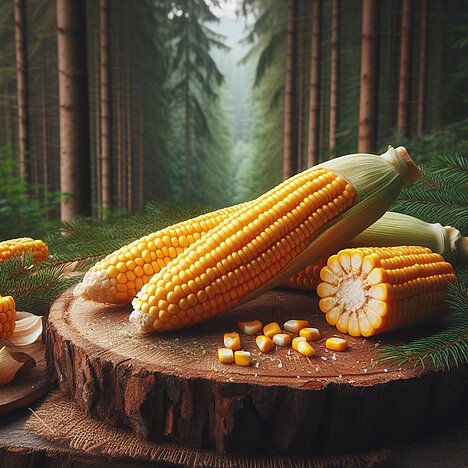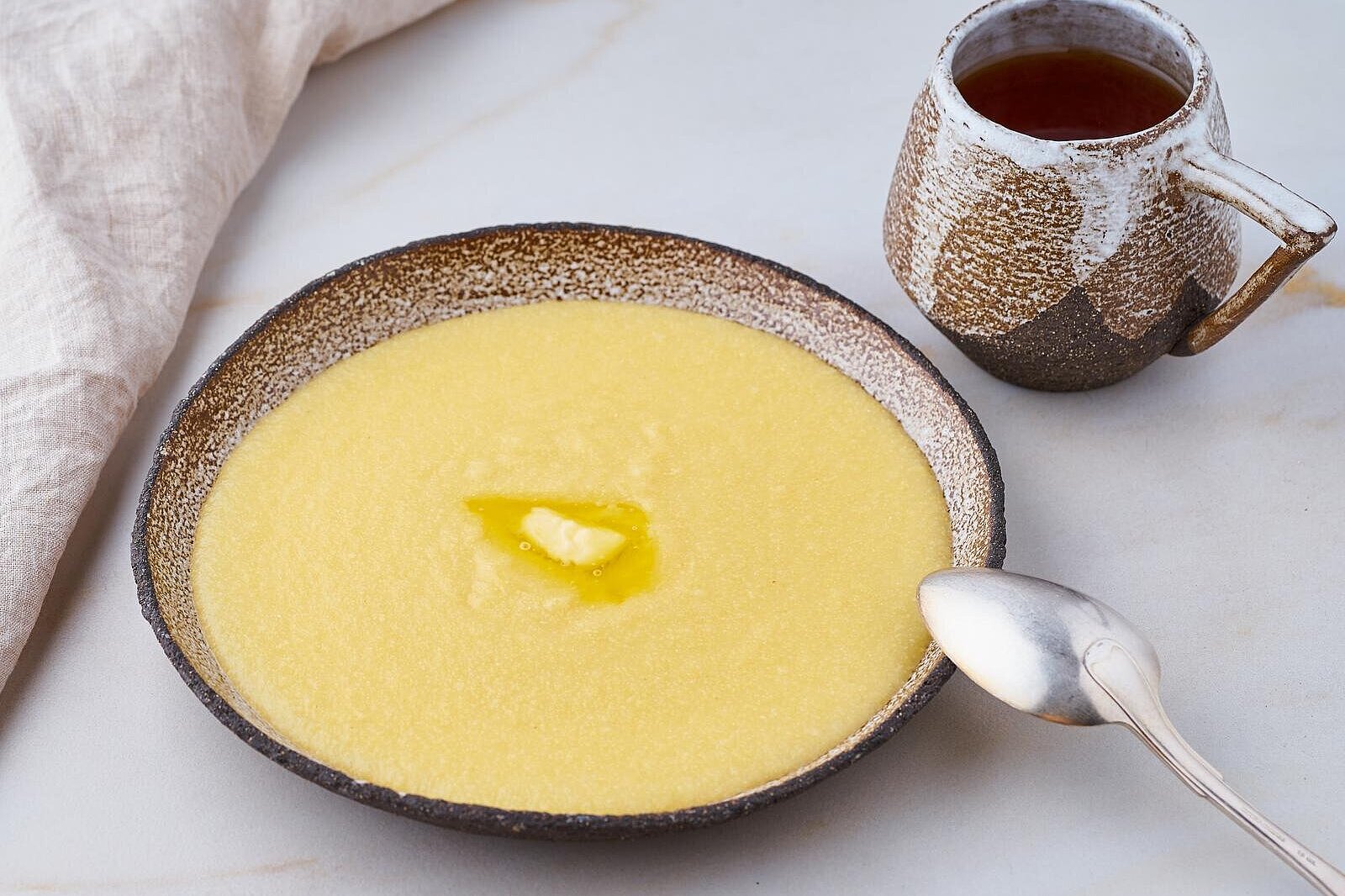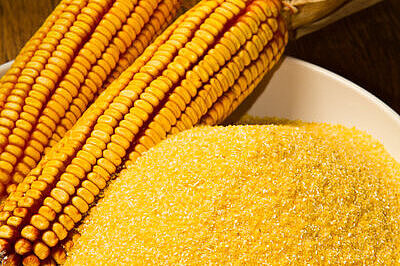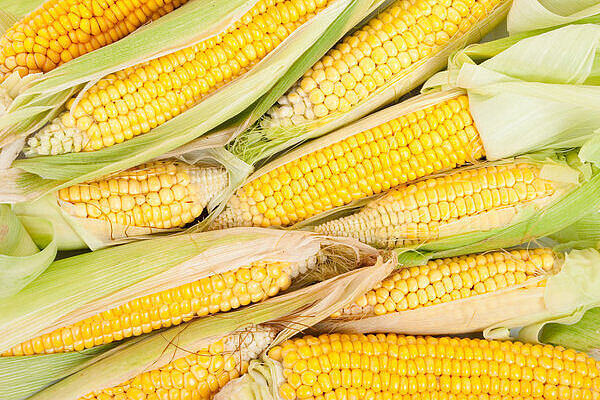Maize

Corn is a type of grain from the grass family. It is grown in many countries as a staple food or animal feed and has a sweet taste. Corn contains lots of vitamins, minerals and fiber, which are important for your dog's health.
But can your dog eat corn? And if so, how much and in what form? In this article, you'll learn all about corn for dogs and its advantages and disadvantages.
Corn is generally not harmful to dogs
If your dog likes to nibble on a few kernels of corn or you give him some corn with his food, you don't need to worry. Corn is generally not poisonous or harmful to dogs. It can even have health benefits:
- It provides energy in the form of carbohydrates.
- It strengthens the immune system with vitamins A, B, C and E.
- It promotes digestion through fiber.
- It supplies the body with minerals such as potassium, magnesium, iron, zinc and phosphorus.
However, corn can also trigger allergies or be difficult to digest.
Although corn has many positive properties, there are also some disadvantages or risks when feeding corn to dogs:
- It can trigger or increase allergies: Some dogs are sensitive to grains (see grain allergy) or certain proteins in corn and show symptoms such as itching, skin rash or diarrhea. If you suspect that your dog is allergic, you should have him examined by a vet and switch him to a grain-free diet if necessary.
- Grain can be difficult to digest: Dogs have a hard time breaking down and utilizing grains. Corn should therefore always be mashed or cooked before giving it to your dog. Raw corn from the field can also contain pesticides or, if swallowed, lead to intestinal obstruction.
- It can lead to obesity: Corn has a high calorie content and should therefore only be fed in moderation. Too much corn can lead to obesity and diabetes.
Corn wafers or potato chips are taboo for dogs.
If you want to do something good for your dog, you should not give him corn wafers or potato chips. These usually contain a lot of salt, sugar or other spices that can harm your dog. They also have no nutritional value and can cause dental problems.
Corn is not a must, but it's not a no-go for dogs either.
As you can see, corn has both advantages and disadvantages for your dog. You can give him some cooked or pureed corn as a treat from time to time, but make sure he doesn't get too much of it.
If your dog has an allergy or digestive problems, you should switch to other vegetables.
And don't forget: your dog's main food should always be high-quality meat!
Properties 3
Are you looking for other ingredients with a specific property?
Just click on them to find more.
If you notice any signs of hypersensitivity or poisoning in your dog, you should see your vet immediately. We are not a substitute for a vet, but we try to be as accurate as possible. Every dog reacts differently and we recommend you get a second opinion or consult your vet if in doubt.
Stay healthy and take good care of your four-legged friend!😊
Similar to Maize
Corn grits is the finely ground endosperm of the corn kernel that remains after the husk, germ and most of the starch have been removed. It contains mainly proteins, fats and fiber and has a high...
Corn oil is a yellowish oil that is pressed from the seeds of the corn plant. It has a mild flavor and a high smoke point, which makes it suitable for frying and deep-frying. Corn oil consists of...
Cornmeal has several positive properties that can make it a useful ingredient in dog food. For one thing, cornmeal is a good source of carbohydrates, which provide your dog with energy. Cornmeal...
Whole grain corn has a number of positive effects on your dog's health. For example: Whole grain corn supports your dog's digestion because it contains a lot of fiber. This promotes bowel movement...



